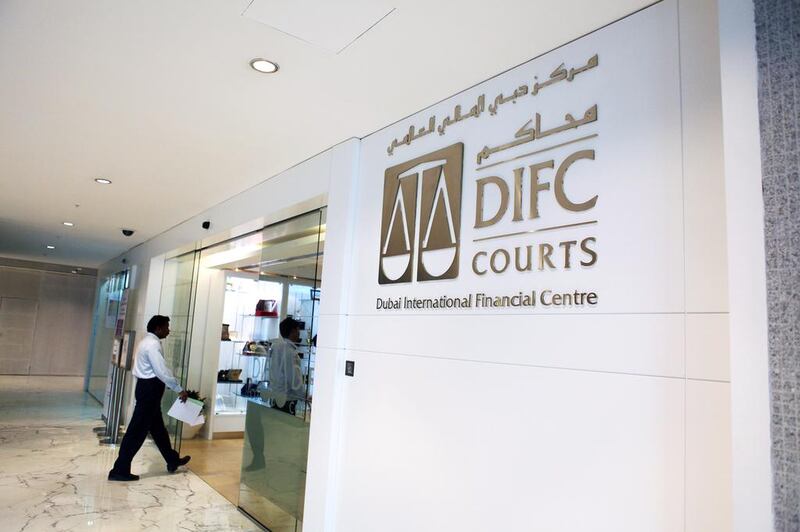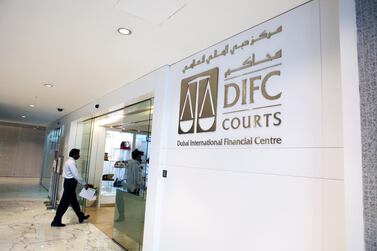Dubai International Financial Centre Courts grew its annual caseload by 29 per cent to 670 cases totalling Dh20 billion in 2018, as the free zone judiciary forges new partnerships with global courts and other bodies.
The value of cases heard across all divisions rose by 422 per cent year-on-year to Dh20.5bn, DIFC Courts said in its annual report on Wednesday.
This includes cases heard in the main Court of First Instance (CFI), as well as arbitration cases, enforcement cases and those heard in the Small Claims Tribunal (SCT), which handles cases with a value of Dh1 million or below. The sharp increase was driven primarily by two high-profile transnational CFI disputes the report does not detail. In 2018, DIFC Courts settled Russian oligarch Farkhad Akhmedov’s divorce case which involved a Dh1.8bn superyacht.
“The DIFC Courts experienced substantial growth in 2018, in both the volume and value of claims,” said DIFC Courts’ chief justice Zaki Bin Azmi.
“These results are testament to the courts being a jurisdiction of choice in the Middle East, an environment in which domestic and international businesses can trust, and one in which contracts can be enforced and disputes resolved fairly and swiftly.”
The total volume of CFI cases heard by DIFC Courts in 2018 grew by 50 per cent year-on-year, “signalling strong business confidence in the English language common law courts”, the report said.
The total value of CFI cases, which also includes arbitration-related cases, reached Dh10.3bn, up from Dh400m in 2017.
The CFI cases covered sectors including banking and finance, construction, real estate and manufacturing, with disputes ranging from breach of contract, outstanding payments, wills and probate, and employment matters.
There was also a rise in the number of “opt-in” cases last year, the report said, with 60 per cent of CFI claims originating from parties bringing overseas cases to DIFC Courts to resolve their disputes.
The total value of enforcement claims reached Dh10.2bn – an increase of 197 per cent year-on-year. The number of enforcement cases increased by 101 per cent to 185.
Meanwhile, the SCT also grew its caseload, by 10 per cent to 399 claims - the value of which grew 47 per cent year-on-year to Dh53.3m. Growth was driven primarily by breach of contract cases, which accounted for 43 per cent of the total, followed by labour and employment, with 27 per cent.
In 2018, DIFC Courts entered into a partnership with the Hong Kong High Court to streamline cases and collection of money judgments in Dubai and Hong Kong. It also signed a pledge with the UK’s University of Oxford China Centre to pool expertise on contract enforcement and other legal matters for investors in China’s $5 trillion Belt and Road initiative, among other partnerships.
The goal for 2019, said Mr Bin Azmi, is to reinforce business confidence in DIFC Courts, and “deliver a comprehensive suite of public services for the good of the communities we serve”.







